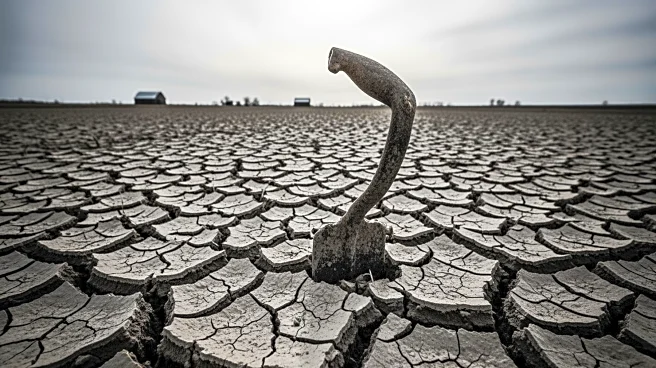What's Happening?
The U.N. climate conference is currently taking place in Belém, Brazil, marking a significant moment as the United States has chosen not to send any top officials for the first time in 30 years. This absence
is notable given the historical role the U.S. has played in global climate discussions. The conference aims to address climate change, a borderless issue that requires international cooperation. Despite the absence of the U.S., leaders from various countries are gathering to discuss strategies to limit global temperature rise to well below two degrees Celsius, as agreed upon in the Paris Agreement a decade ago.
Why It's Important?
The absence of the U.S. at the U.N. climate summit raises questions about the effectiveness of global efforts to combat climate change without one of the world's largest economies and historically significant contributors to greenhouse gas emissions. The U.S. has been a key player in past climate agreements, and its participation is crucial for the implementation of global strategies. The lack of U.S. involvement could hinder progress and weaken international resolve, potentially affecting global climate policy and the ability to meet temperature targets set in the Paris Agreement.
What's Next?
The conference will continue with discussions among other nations, focusing on collaborative efforts to address climate change. The absence of the U.S. may lead to increased leadership roles for other countries, such as China, in shaping global climate policy. The outcomes of the conference could influence future international climate agreements and the strategies countries adopt to meet their climate goals. Observers will be watching to see how the U.S. absence impacts the dynamics and decisions made at the summit.
Beyond the Headlines
The U.S. absence at the climate summit may reflect broader geopolitical shifts and changing priorities in international relations. It could signal a move towards more regional or bilateral climate agreements, as countries seek alternative ways to collaborate on environmental issues. This development might also prompt discussions on the ethical responsibilities of nations in addressing global challenges like climate change, emphasizing the need for collective action despite political differences.








